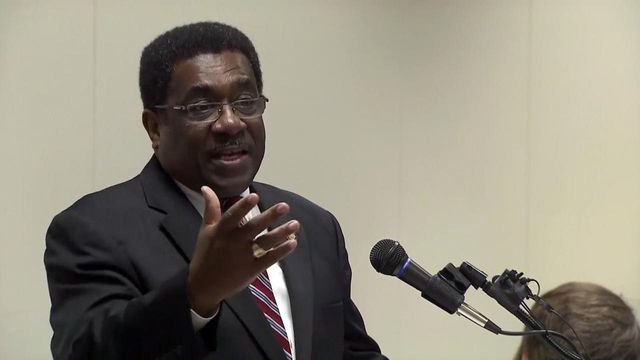House leaders back asbestos claim changes
A bill to change how asbestos victims can sue for damages appears to be headed to the House floor. But victims' advocates say it's designed to delay the process.
Posted — UpdatedUnder federal law, people who have contracted mesothelioma, an untreatable, incurable cancer caused by asbestos exposure, can file claims with bankruptcy trust funds that were set up by now-insolvent companies that made asbestos products during the 20th century.
About 60 such funds exist, holding a total of about $30 billion, according to Mark Behrens with the U.S. Chamber Institute of Legal Reform. Each fund has its own management and its own schedule of awards, based on the frequency and duration of the victim's exposure to its products. After years of litigation, many are so depleted that they're paying only pennies on the dollar at this point.
The measure, which passed the Senate 43-5 with little debate in April, would require victims to research and file claims with all potentially liable bankruptcy trust funds within the first 30 days of a civil suit and then provide information about any awards to the defendant, which could then claim those sums as an offset against its own liability.
The proposal is supported by business groups, which say the defendants in these cases are not big corporations – they're smaller businesses such as automotive dealers and body shops where victims may have been employed when they were exposed to asbestos.
Sponsor Sen. Michael Lee, R-New Hanover, said the measure is designed to prevent "double-dipping" by victims who might sue a former employer and recover damages and then file claims against the bankruptcy trust as well.
That practice is allowed under North Carolina law, which allows victims in such cases to file separate lawsuits against as many or as few defendants as desired.
Lee said the measure is intended to protect the remaining amounts in those bankruptcy trust funds for future asbestos victims. But noted asbestos victims' attorney Janet Ward Black said it would accomplish the opposite, pushing the burden onto the funds to spare other businesses and forcing victims to file multiple claims with any possible fund before seeking damages.
Lee argued that the change would make sure every victim could receive 100 percent of his or her damages but could not "game the system" to receive more. However, Black argued that the effect would be to dramatically slow any payout to the victim or family.
"The end result is to delay payment or verdict for an individual that is suffering from a cancer," she told the committee.
She also called unreasonable the bill's 30-day deadline for the plaintiff to research all 60 trust funds, file claims where possible, and then swear that all potential avenues have been exhausted before a trial can begin.
"Every one of these solvent defendants can get money out of these bankruptcy trusts. The dying plaintiff doesn’t have to do it for them," Black said. "Don’t make them swear to something they can’t swear to."
A section of the bill that was dropped in an amendment would have allowed a defendant in a civil suit to deduct any "reasonably expected" bankruptcy trust fund awards from the total damages it would have to pay. Black said that could allow defendants to escape any liability, leaving the victim's family to wait up to a decade to receive a fraction of their claim from funds that are slow to pay out.
Behrens said he had helped to negotiate similar measures passed in 12 states.
"Plaintiffs will receive 100 percent of their damages, and wrongdoers will be held fully accountable," he told the committee. "People would no longer get paid twice for the exact same injury. The bill would stop double dipping. That’s important because there is not an infinite amount of money to pay everybody. The fact that 110 companies have gone bankrupt is proof of that.
“Paying more than 100 percent to today’s victim robs from the victims of the future," Behrens added, saying that the average award to a mesothelioma victim is $1 million.
However, Black said, in North Carolina, victims are lucky to get half of that, and she questioned the need to make changes in state law since no such case has been tried in state court for at least 27 years. Such cases are typically filed in federal court.
"There is not a single case in North Carolina that anybody can point to that said that a dying man or a dying woman got more money than they deserved," she said.
Eight other states have rejected similar measures this year alone, Black said.
• Credits
Copyright 2024 by Capitol Broadcasting Company. All rights reserved. This material may not be published, broadcast, rewritten or redistributed.





